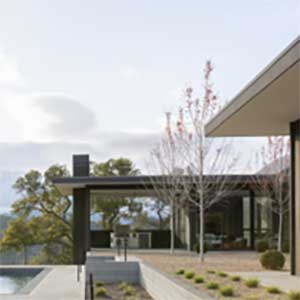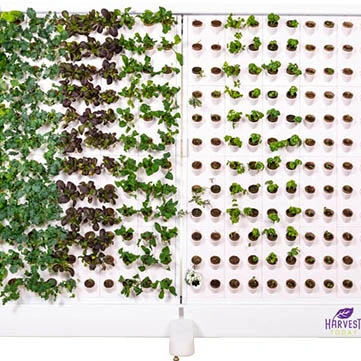September 18, 2024

As mentioned by our previous blog on modular housing, prefabricated homes are growing in popularity. From 2021 to 2027 there is an expected CAGR of 2.6%, resulting in an industry growth from 420 million USD to 490 million USD (360 Research Reports). One of the up and coming modular housing companies is Method Homes. It is a prefab home company based in the Midwest with an emphasis on custom builds.
In an interview with John Bacon, Method’s Sales Director, we explored the company’s strategy and unique approach to the prefab housing market.
About Method Homes
Founded in 2007, Method operates within a 1000 mile radius of their base in Seattle. They serve most of the midwest and offer a variety of housing options ranging from custom residential to workforce housing to commercial structures. As of 2024, they have completed over 400 projects. They expect to continue to expand their reach and rate of growth over the coming years.
Approximately 90% of Method Homes’ projects are custom-designed, with only 10% using preset blueprints. John Bacon, the Sales and Design Manager, explains, “If you just make something that’s exactly the same over and over again, it tends to not respond enough to the climate, to the client, to other considerations.” Their emphasis on custom builds reflects Method Homes’ commitment to client satisfaction.
Method notes that a good portion of their client base comes from either labor or weather constrained areas. For these clients, the fast building time, predictable build schedule, and quality control of modular housing allows many traditional obstacles like weather delays to be comfortably bypassed.
Designing Your Method Home
Method Homes offers both pre-designed layouts and fully custom builds. Regardless, the process is tailored to site specifications, ensuring continuous dialogue between you and the architect.
Cost and Timeline
- Base Price: $300–$400 per square foot
- Custom Builds: Up to $1,000 per square foot
- Completion Time: 2-4 months from permitting to final build
These costs are comparable to traditional housing, making Method Homes a competitive option in the market.
Sustainable Development at Method Homes
Sustainability is at the core of Method Homes’ mission. The company implements strong recycling practices, particularly with wood and drywall. This reduces construction waste to less than 10% of traditional build-produced waste. They minimize home energy costs by prioritizing efficient insulation and maximize home lifespan by using materials with longevity. For instance, they utilize plywood instead of oriented strandboard (OSB) for sheeting.
Energy Efficiency and Longevity
Furthermore, Bacon emphasizes that Method guarantees their sustainable practices by “working with the most stringent environmental certifications.” Enrolling in reputable certification programs such as LEED, ENERGY STAR, Passive House, and the Living Building Challenge, they cross-check that their environmental execution meets industry standards
Commitment to Climate Neutrality
Their commitments extend beyond the houses they build to the company itself. Method has committed to achieving climate neutrality and producing entirely net-zero energy homes by 2030. Shifting their factory to solar power, they are solidly on track to meet their climate targets.
Balancing Sustainability and Aesthetics
However, sustainability does not come at the cost of beauty or practicality. Bacon emphasizes, “You can build a perfectly sustainable little box, but if nobody loves it, they’re going to tear it down, even if that thing is net-zero or net-positive.” Method Homes understands that true sustainability also considers the longevity of the home.
Modular Home Hesitation
Despite the benefits of modular, Method Homes still recognizes the stigma against it. Offsite construction is often associated with lower-quality homes or uninspired cookie cutter designs. Younger generations are more open to the idea of modular. Older home-owners are often unwilling to shift away from traditional housing.
Market Outlook: The Future of Modular Housing
Method Homes acknowledges that modular housing is still in its early stages, with significant room for growth. Since its founding 16 years ago, the industry has seen many companies come and go. Method attributes its long-term success to two key factors: “Our people and our approach.”
A Strategy for Sustainable Growth
With a strong core team led by founder and CEO Brian Abramson, Method’s business strategy focuses on deliberate development and organic growth. This approach, they believe, will lead to long-term success in the expanding modular housing market.
Collaboration Over Competition
Bacon expresses a collaborative outlook on the industry: “I look at it less as competition; I want to see them all succeed.” For Method, modular housing represents more than just a business model. It’s a shift toward a more sustainable, efficient housing style that benefits everyone.
Conclusion
Method Homes seamlessly blends sustainability with practicality in the modular housing industry. By focusing on custom designs, fast build times, and environmentally conscious practices, they are paving the way for a more sustainable future in housing.
Disclaimer
The information provided on this blog is for general informational purposes only. It is not intended to be a comprehensive analysis of the securities, markets, or developments referred to. While we strive to ensure the accuracy and reliability of the information, the content of this blog does not constitute financial advice, investment advice, trading advice, or any other advice. You should not treat any of the blog’s content as such.
We do not recommend that any securities listed or discussed be bought, sold, or held by you. Nothing on this blog should be taken as an offer to buy, sell, or hold securities. Please conduct your own due diligence and consult with a qualified financial advisor before making any investment decisions.
Forward-looking statements made in this blog are only predictions and are subject to risks, uncertainties, and assumptions that are difficult to predict. Therefore, actual results may differ materially from those expressed in forward-looking statements. We expressly disclaim any obligation to update or alter statements whether as a result of new information, future events or otherwise, except as required by law.
Featured image is courtesy of Method Homes

August Indoor Ag Update: M&A Galore & Indoor Specialty Crops Funding

July Indoor Ag Update: Acquisitions Accelerate & Funding Returns

Five Farms Making a Go of Indoor Agriculture

Dyson’s 250% Yield Breakthrough Headlines June AgTech: Vertical Farming Advances, M&A Activity, and Industry Setbacks

Indoor Agriculture Pivots to Home Gardens as Vertical Farming Failures Drive Strategic Reevaluation

Zordi Series B and May 2025 Indoor Agriculture Developments

Freight Farms Bankruptcy and iUNU’s $20M Raise Highlight April’s Indoor Ag Contrasts

Freight Farms Resources: Indoor Ag Companies Stepping Up to Support Freight Farmers

How to Finance Your Hydroponic Project in 2025: Finding Opportunity in a Shifting Market

Indoor Ag’s New Reality: Practical Advice from Investment Banker Adam Bergman

Plenty Unlimited bankruptcy dominates March’s indoor ag news, overshadowing new farm plans
